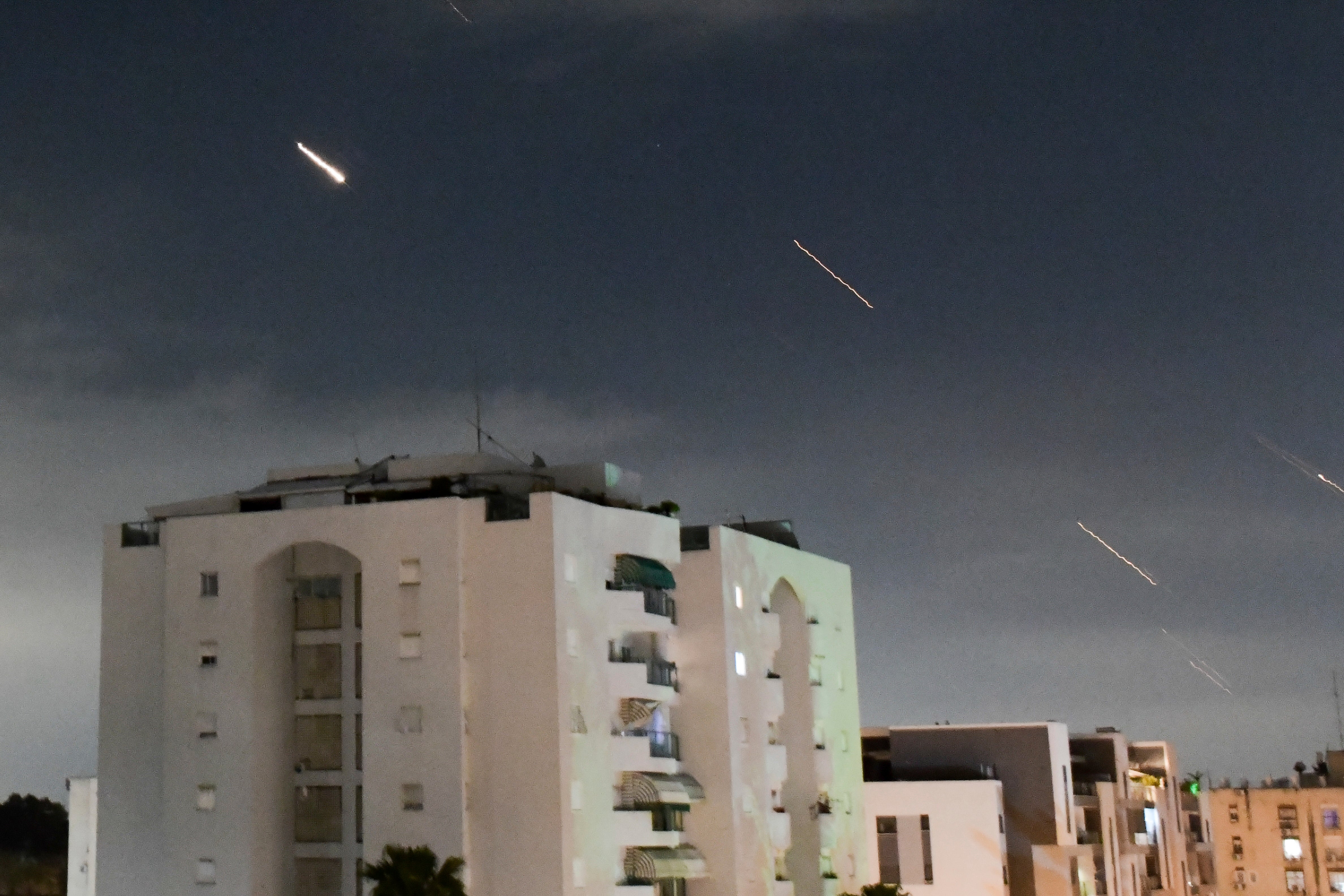How is the UK involved in the Iran-Israel conflict?
RAF jets take part in mission to shoot down Iranian drones targeted at Israel
With parliament kicking back into action today following the Easter break, much of the focus will be on the Middle East as the world awaits Israel’s response to drone and missile attacks on its territory by Iran.
Tobias Ellwood, the former defence minister, warned over the weekend that Britain is “now involved in this too” after it emerged that RAF warplanes helped shoot down Iranian drones targeted at Israel, an ally of the UK, amid fears of a wider conflict in the region, which has been destabilised by the war in Gaza.
Prime minister Rishi Sunak confirmed that UK jets shot down a “number” of Iranian drones, which were taken out in Syrian and Iraqi airspace.
The shooting down of the drones was carried out under Operation Shader, the name of the UK’s existing counter-IS operation in Iraq and Syria, a global coalition led by the US which was launched after the UK parliament in 2014 voted for offensive military action in Iraq to counter the threat by IS.
The government at the time, led by Lord David Cameron, said the action was legal because Iraq’s government had requested international help to tackle the Sunni extremist group, which had overrun large parts of Iraq and Syria, murdering religious minorities and Shia Muslims.
Lord Cameron, now the foreign secretary, speaking to broadcasters on Monday morning, described Iran’s attack on Israel as a “double defeat” for Tehran as he urged Benjamin Netanyahu, Israel’s prime minister, to “take the win” and not retaliate.
Iran has funded, trained and supported Hamas for decades and the country’s theocratic government has been designated by the US as a state sponsor of terrorism.
Lebanon-based Hezbollah is viewed by analysts as Tehran’s largest, oldest and best-trained proxy group in the Middle East. Hezbollah and Israel have also come into conflict since Hamas’s 7 October terror attack.

The British warplanes used to shoot down an unconfirmed number of Iranian drones were Typhoon FGR4s, twin-engine fighter jets with a 36ft (11m) wingspan armed with air-to-air missiles, precision-guided bombs and air-to-ground projectiles.
Typhoons can reach maximum speeds of 1,381mph – almost twice the speed of sound – and a single jet costs some £120m. They have a maximum altitude of 55,000ft (17,000m).
The RAF’s Typhoon force consisted of 137 aircraft in seven squadrons as of February 2023.
The fighter jets are supported by Voyager aircraft, 192ft (59m) long air-to-air refuelling tankers equipped with two underwing pods for restocking the Typhoons over long ranges.
The tankers are just slower than the speed of sound, have a 198ft (60m) wingspan and can carry 111,000kg of fuel.
The RAF’s operational headquarters in the Middle East is at Al Udeid air base in Qatar, which it shares with the US Air Force (USAF) and Qatar Emiri Air Force (QEAF). The base is responsible for co-ordinating the RAF’s contribution to Operation Shader,
However, it is understood the RAF Typhoons used to intercept the Iranian drone attack were deployed from Cyprus, where the force operates a Permanent Joint Operating Base.
Jets from RAF Akrotiri were deployed from the island nation to help protect Israel – though its president Nikos Christodoulides said he had not been forewarned of the decision to mobilise aircraft from the base.
The government has since confirmed that it will be deploying more jets and air refuelling tankers to bolster its presence in the Middle East.
Join our commenting forum
Join thought-provoking conversations, follow other Independent readers and see their replies
Comments
Bookmark popover
Removed from bookmarks